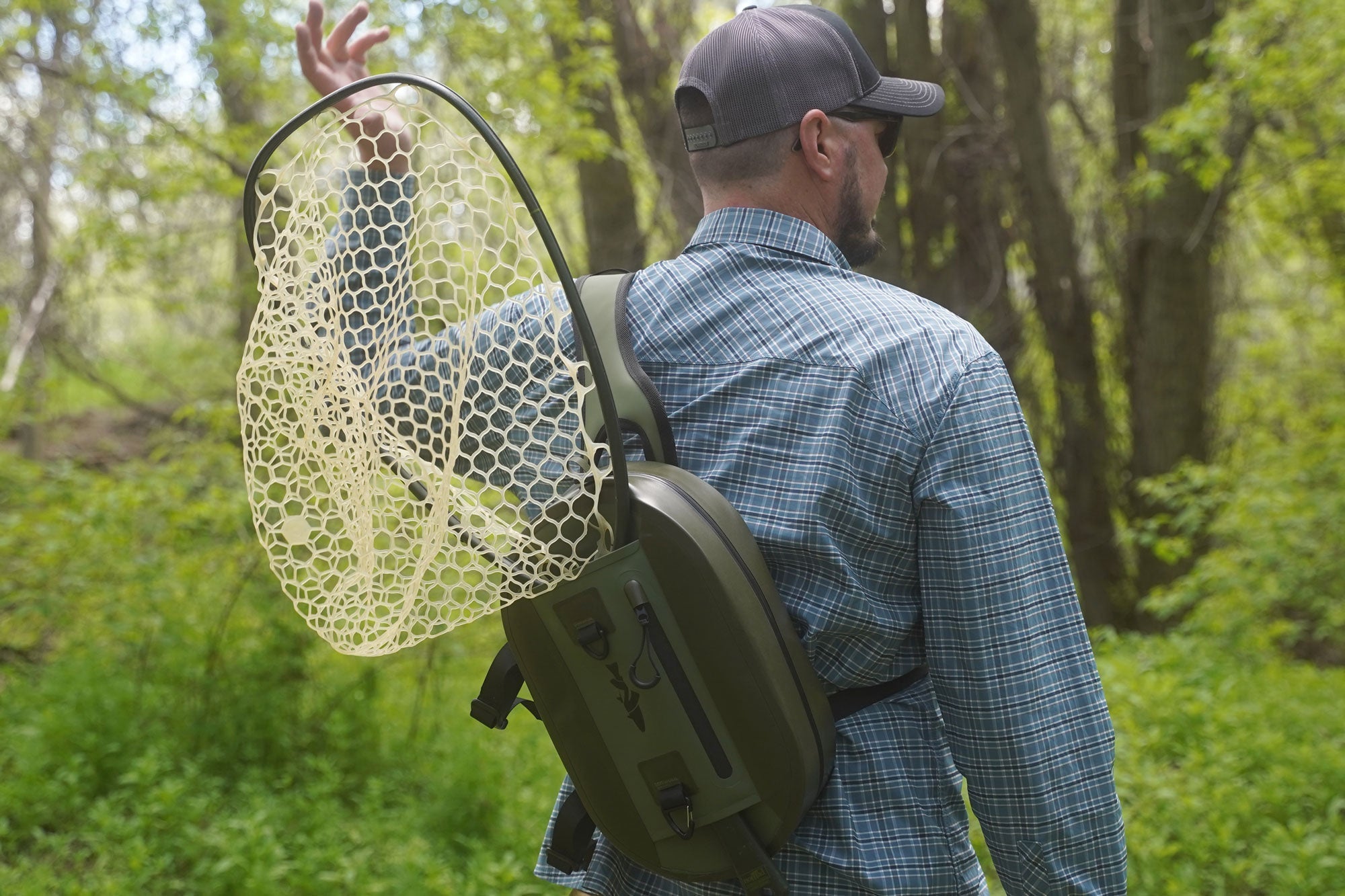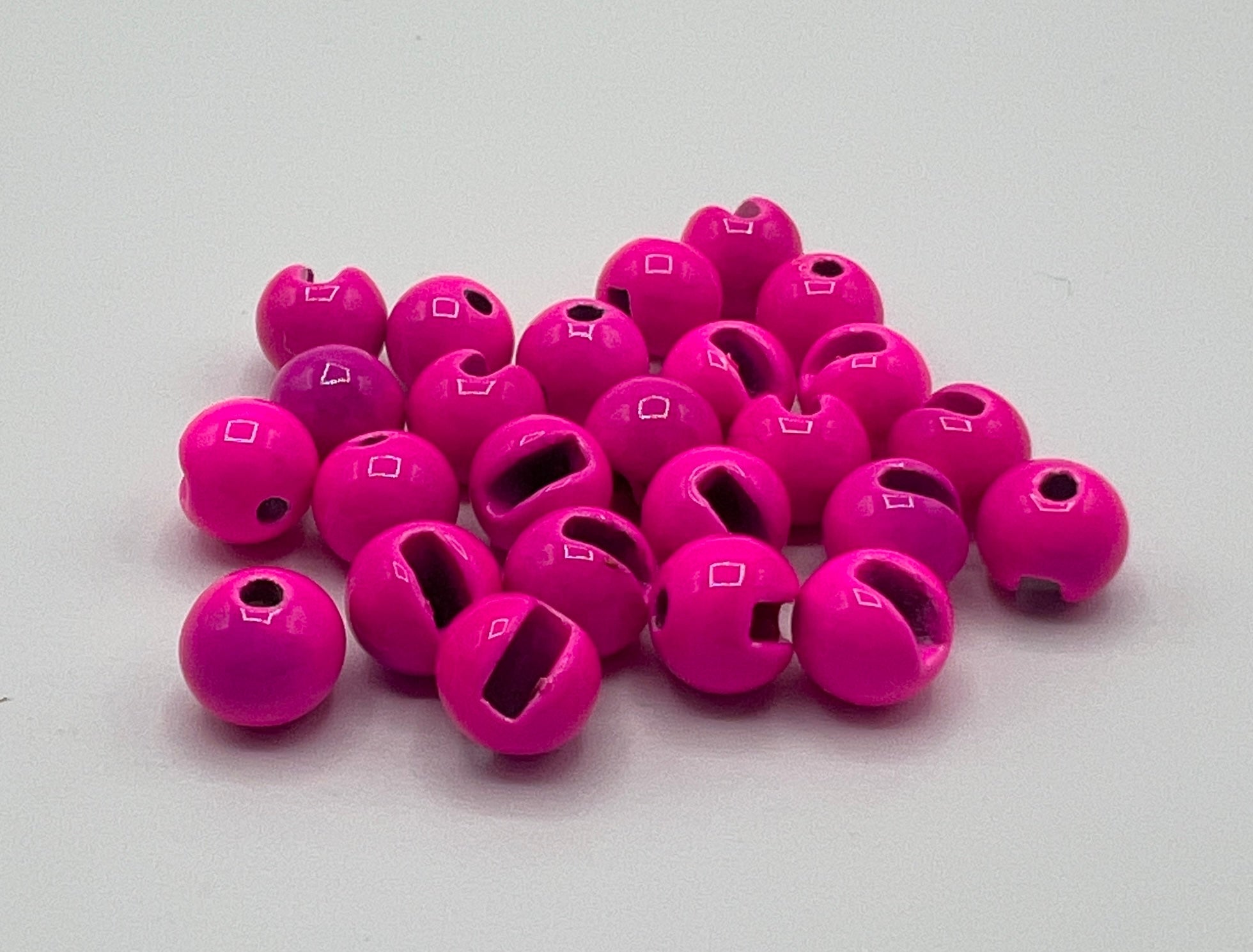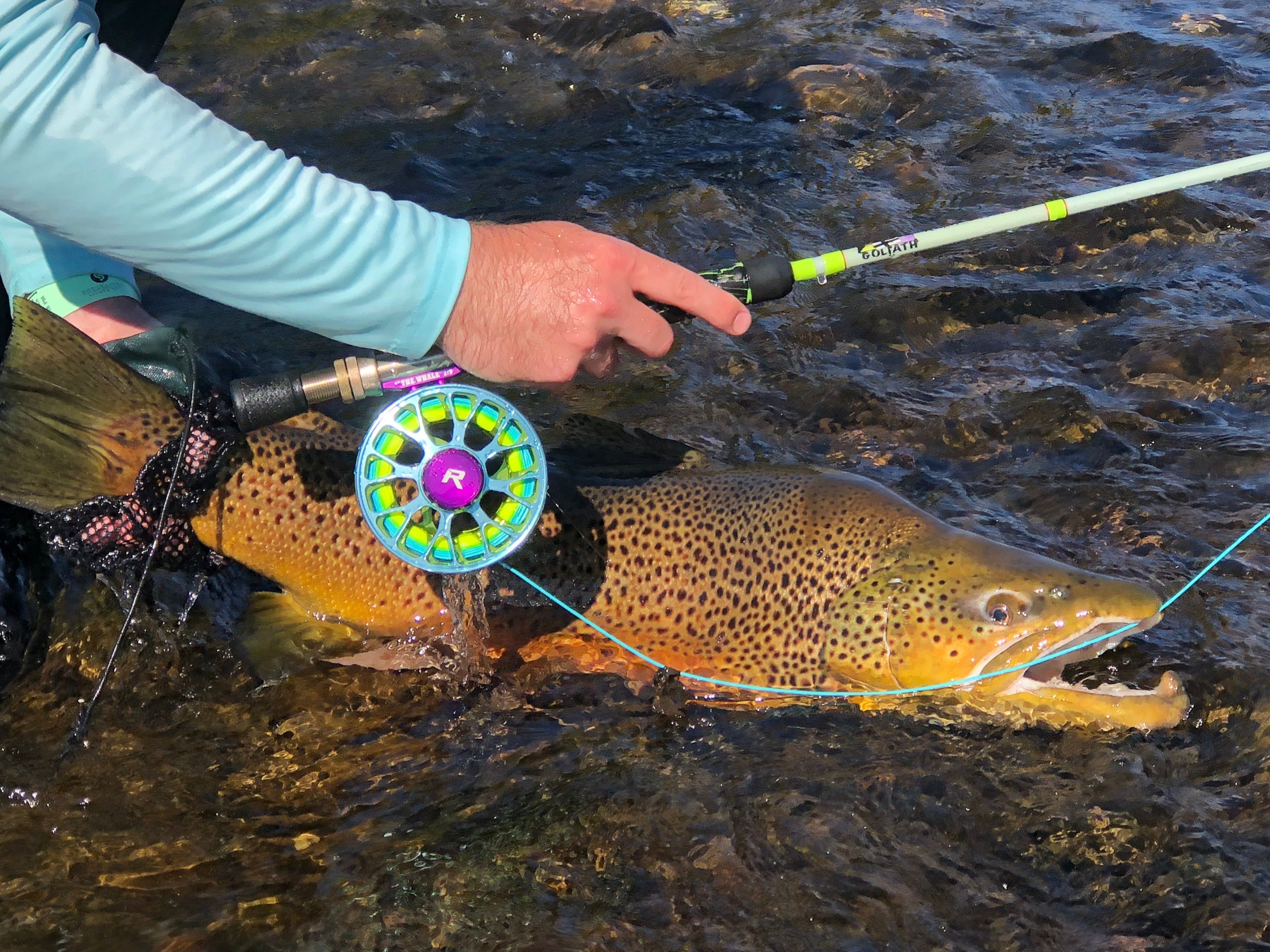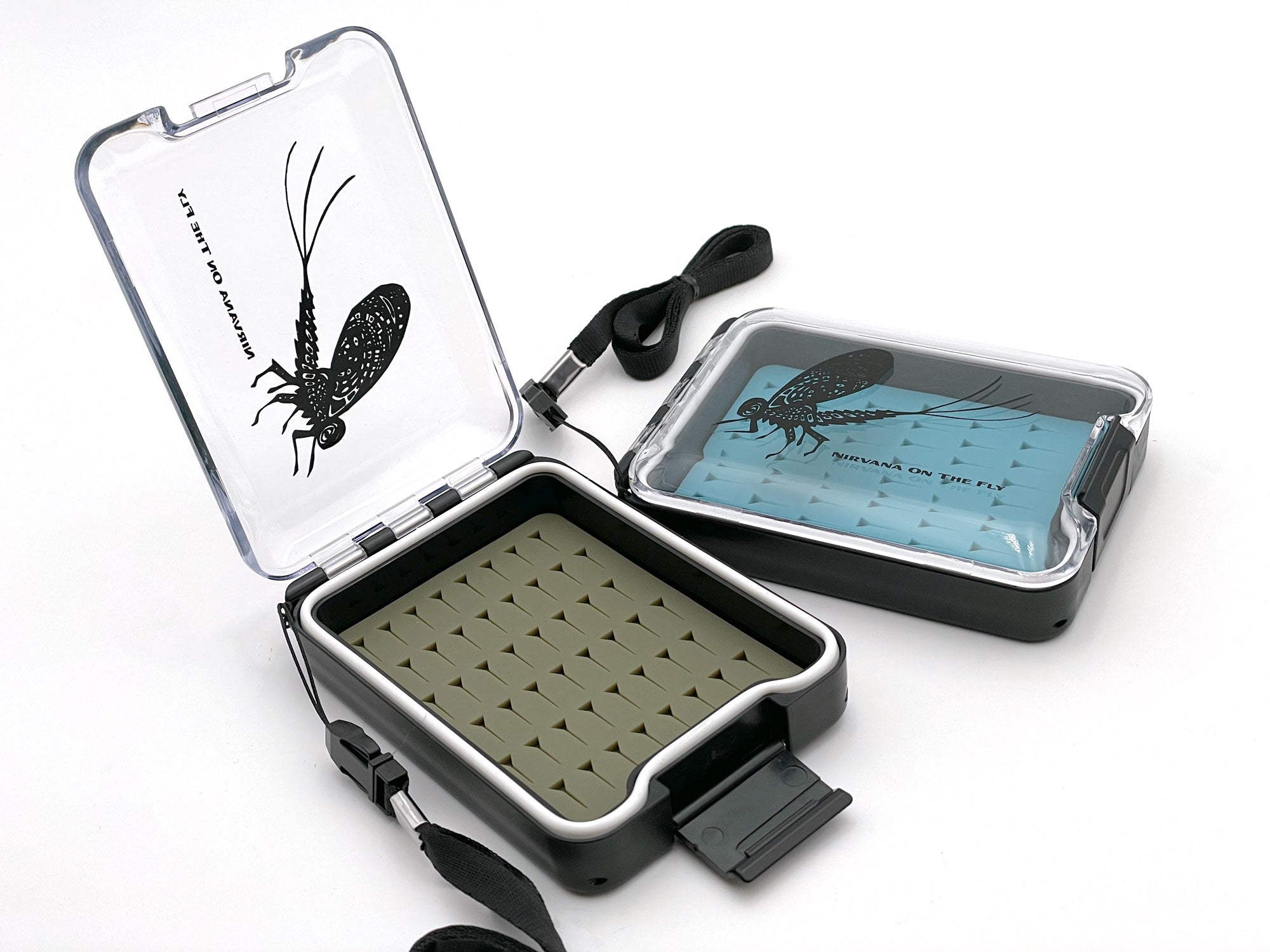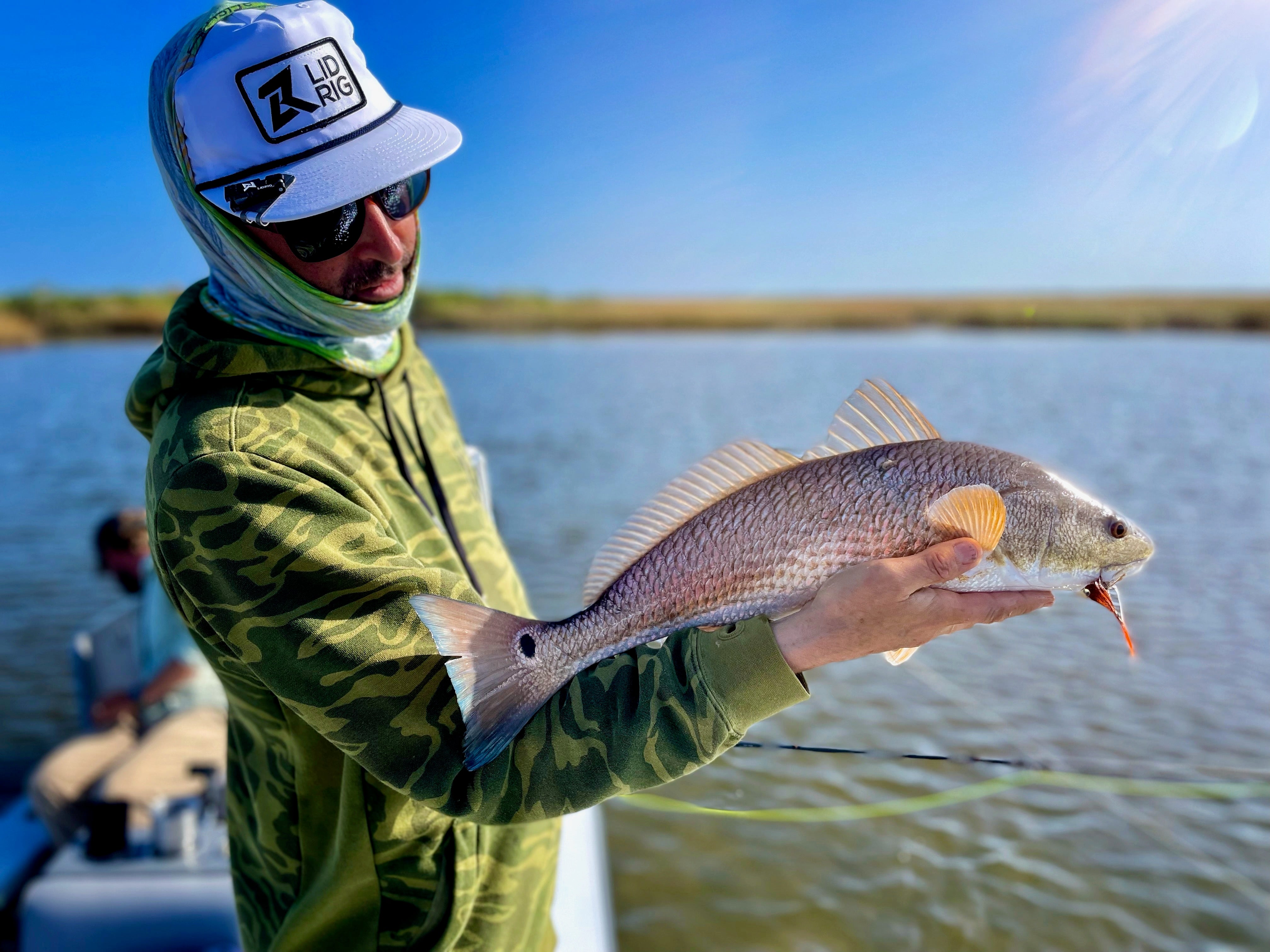I am not an expert fly angler nor a professional in the fly fishing business, but I have fished all over the world, mostly for strong fish – Peacock Bass, Golden Dorado, monster trout in Patagonia, big rainbows in Kamchatka, Silver Salmon in Alaska, and bonefish and Tarpon in warmer climates. On one trip from my home in London to Patagonia I had a pivotal experience with an airline that caused me to think about using 6-7 piece travel rods instead of traditional 4-piece rods.

“What? You mean I can’t carry on my fly rod tube? I carried it on the plane from the US, now you tell me your carrier won’t allow a carryon that long? How much to check it?” That’s when I hit the roof. The equivalent of $150 to check my rod tube. I paid it, no choice, but started looking for a cheaper way to enjoy international travel with fly rods. A normal 9 foot, 8 weight 4-piece fly rod won’t fit in a traditional suitcase, hence the need for a rod case or rod tube capable of holding 3 or 4 rods. And special luggage for fly anglers is usually big, bulky, and heavy. When full they often exceed the 15 kilogram (about 33 pounds) limit for checked luggage on many internal foreign carriers.
So, I started looking at travel rods, 6-7 piece fly rods, in the 7,8,9 weight range. Before buying anything, I rang up several friends in the fly fishing industry – guides, equipment reps, and a few whom I consider expert and experienced fly anglers. When I told them I was thinking of only taking travel rods on my next trips to the Amazon for Golden Dorado and Peacock Bass, the blowback was the same from all of them. “Are you crazy? (We will defer that question for now.) Travel rods won’t hold up to big fish. They don’t have the backbone. And with so many joints, they can easily snap or come apart at the joints. And they cast like a wet noodle. Why risk an expensive trip on a crappy rod?”
It was virtually the same message from everyone. And one of my favorite fly fishing shops and travel companies said they didn’t even stock travel rods. “No demand, and they are crap anyway.” Then I started researching fly rod manufacturers and found something interesting. Few of the best make travel rods. And if they do, only in the smaller weight trout rod sizes. And the prices are $400-$700 range,
All this negative stuff about travel rods piqued my curiosity. “Are they really that bad?” So, I decided to find out for myself. I had two trips planned to the Amazon jungle for big fish, one to Brazil at Kendjam (run by Untamed Angling) and the other to Colombia to the Mataveni River (hosted by The Fly Shop in Redding, California). The first challenge was to get hold of several 8 weight travel rods. I approached several manufacturers in the UK and Europe (I live in London) about a free rod in return for a review on how their rod handled big fish and the harsh conditions of the Amazon. Hardy has the Aydon Travel Fly Rod in an 8 wt. 9 foot model for $550. So I called, got hold of a representative, told them about my travel rod research, and asked for a sample rod to try out in turn for feedback on how it performed on big fish in the Amazon jungle. “We don’t supply rods for testing, but you can purchase one.” On to the next big manufacturer, Grey’s (owned by Pure Fishing) with the same result.
So, let’s do this the easy way as a first test. I bought three travel rods for under $100 each – Wynchwood, a moderate range English brand, a Shakespeare from Columbia, South Carolina, and then I decided to test an unknown brand from China, for around $50, a brand I never heard of, Sensing. Then, on a whim I phoned up a friend at Orvis headquarters, told him about my plan and the need for a quality travel rod to test. He sent me an 8wt, 9ft Orvis Clearwater 6-piece travel rod. I was set for my trips to the Amazon jungle for big fish with travel rods. I would have liked to test more, but here are the results and my judgement on the myths and realities of travel rods.
First, traveling with travel rods is a breeze. One checked bag is all it took for all my clothes, reels, leaders, flies and four travel rods, which at the most measured 22.5 inches. Everything easily fits in a medium duffel bag or soft-sided luggage case.
Second, they all cast well, with the Orvis Clearwater being the best casting by far of the four. It was stiffer than the others and faster action. The Chinese model was last for casting, but still fished surprisingly well, until the tip broke on a medium sized fish. To be expected with a rod so cheap, but good research includes the best and worst for comparison. I wonder just how many companies have their fly rods made/assembled in China? (Something to explore later)
As far as being too weak for big fish, that was the biggest myth of all. The Orvis, Shakespeare and Wynchwood travel rods all fought and landed big fish, as did the Sensing, to the surprise of the guides and my fellow anglers at both locations. And none of the joints came loose while casting the entire time (I have had 4 piece rods come loose more than once). While I was understandably nervous and somewhat tentative at first using those relatively inexpensive travel rods on big fish, I quickly got over my hesitations and fished them all equally hard.
The results speak for themselves:

A large, hard fighting Bicuda landed on a Shakespeare, 8wt, 9.5 ft, 7-piece travel rod.

A nice size Wolf Fish caught on a Wynchwood, 8wt, 9ft, 6-piece travel rod.

A nice sized Peacock Bass landed on the Sensing, 8wt, 9ft, 7-piece travel rod.
Maybe I am a little crazy for taking only inexpensive travel rods to the Amazon for big fish, but now I am keen to try some of the upmarket, pricier brand travel rods for my next big fishing trip, probably to Estancia Laguna Verde Lodge at Jurassic Lake in Patagonia for 20 pound trout on steroids. Hopefully I can persuade a few companies to pony up their best 7,8,9 wt travel rods to see how they handle those monsters.
Anyway, you can decide for yourself how you feel about travel rods. Remember, the same concerns were voiced for the switch from 2-piece to 3-piece rods, and then from 3-piece to 4-piece rods. I don’t believe in myths. We make our own reality.
Tight lines.
About the Author
John R Childress is a retired CEO and long-time fly angler. He is also the author of the book, Fly Fishing for Leadership, which matches the principles of leadership with the principles of fly fishing. For the book he interviewed over 70 guides, lodge owners, fly industry executives and avid fly anglers. Their insights on what they learned about leadership from fly fishing form the basis for many interesting insights and stories. Fly Fishing for Leadership can be found in paperback and eBook format at Amazon digital bookstores.


